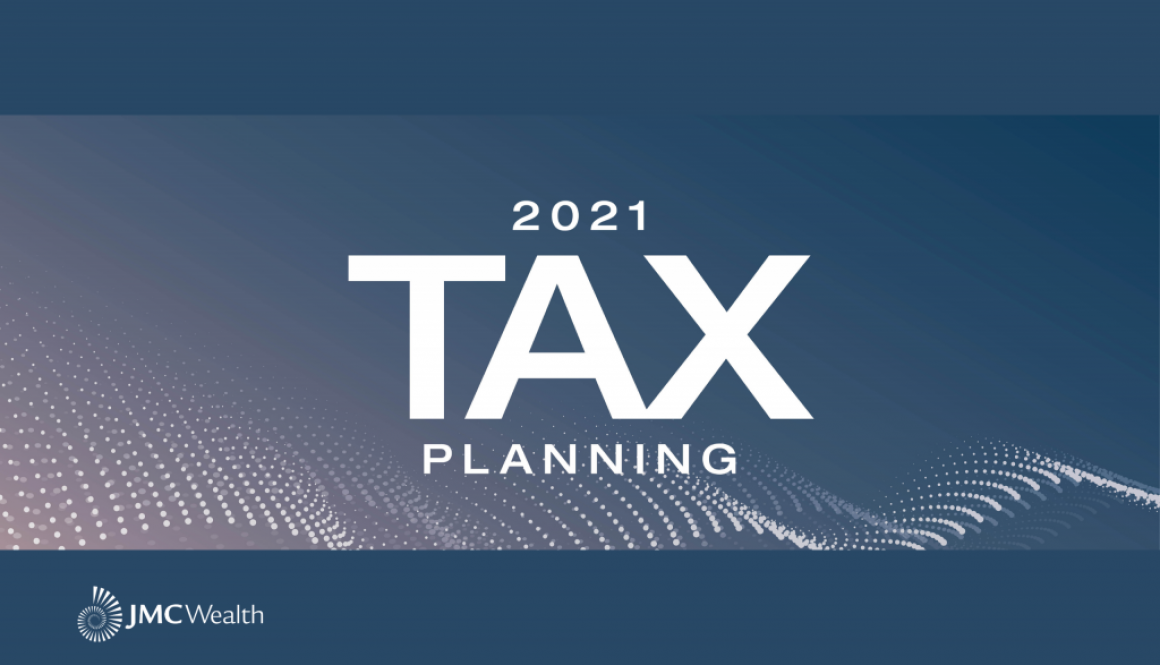2021 Tax Planning
UNDERSTAND WHERE YOUR FEDERAL TAX DOLLARS GO
In this guide, we will explore where your tax dollars go and some of the ways tax filing may look different in 2021 as well as what you can do to prepare. Keep in mind, this guide is for informational purposes only and is not a replacement for real-life advice, so make sure to consult your tax, legal, and accounting professionals before modifying your strategy.
Before we dive into the upcoming tax brackets and what you can do to prepare for 2021, it can be helpful to understand precisely where the government allocates your federal tax dollars.
HOW TO PREPARE FOR THE 2020 TAX SEASON
MEDICARE, MEDICAID, MARKETPLACE SUBSIDIES, AND CHIP
The Medicare, Medicaid, Affordable Care Act (ACA) marketplace subsidies, and Children’s Health Insurance Program (CHIP) together accounted for $1.1 trillion in 2019 or 25% of the budget.1
DEFENSE SPENDING
Another $697 billion was paid for defense and security-related international activities. The bulk of the spending in this category reflects the underlying costs of the Defense Department. This includes the cost of multiple defense initiatives and related activities, described as Overseas Contingency Operations in the budget.1
SOCIAL SECURITY
Twenty-three percent of the budget, or $1 trillion, was paid for Social Security, which provided monthly retirement benefits averaging $1,503 to 45 million retired workers. Social Security also provided benefits to 3 million spouses and children of retired workers, 6 million surviving children and spouses of deceased workers, and 10 million disabled workers and their eligible dependents in December 2019.1
A NOTE REGARDING COVID-19 AND 2020
As many are no doubt aware, the coronavirus pandemic wrought massive changes to the financial landscape. Although it is highly unlikely that the same scale of change will be seen in 2021, these historic changes are worth noting. In 2020, the Coronavirus Aid, Relief, and Economic Security (CARES) Act became law, giving taxpayers the option to skip required minimum distributions (RMDs) from traditional individual retirement accounts (IRAs) and 401(k)-style plans. In addition, the IRS allowed taxpayers an extension until July 15 to file their Form 1040. July 15 was also the deadline to pay any federal taxes owed for 2019.2,3
THE TAX BRACKETS
The tax brackets are: 10%, 12%, 22%, 24%, 32%, 35%, and 37%.4
These modest changes to the tax brackets also mean that wage earners may fall into lower brackets. Here is one example. A single filer at $83,000 in taxable income would fall into the 24% bracket for tax year 2018. The filer would be in the 22% tax bracket in 2020.
To read more download the full PDF version of this report:
2021-TaxPlanningWhitepaper-JMC Wealth
Footnotes & Disclosures
Julie M. Murphy, CFP®, CLU®, ChFC®, MBA
Securities offered through LPL Financial, Member FINRA/SIPC. Investment advisory services offered through Sequoia Wealth Management LLC, a registered investment advisor. Sequoia Wealth Management LLC and JMC Wealth Management, Inc are separate entities from LPL Financial.
These are the views of Platinum Advisor Marketing Strategies, LLC, and not necessarily those of the named representative, broker/dealer, or investment advisor and should not be construed as investment advice. Neither the named representative nor the named broker/dealer or investment advisor gives tax or legal advice. All information is believed to be from reliable sources; however, we make no representation as to its completeness or accuracy. Please consult your financial advisor for further information.
Remember, if you have any financial questions, we can help you navigate a complicated landscape and collaborate with your legal and tax professionals. Your happiness is our ultimate concern, and we’re here for you at every step.
This material is for information purposes only and is not intended as an offer or solicitation with respect to the purchase or sale of any security.
Investing involves risk including the potential loss of principal. No investment strategy can guarantee a profit or protect against loss in periods of declining values.
Past performance does not guarantee future results.
Consult your financial professional before making any investment decision.
Opinions expressed are subject to change without notice and are not intended as investment advice or to predict future performance.
All information is believed to be from reliable sources; however, we make no representation as to its completeness or accuracy. Please consult your financial professional for further information.
These are the views of FMG Suite, LLC, and not necessarily those of the named representative, broker/dealer, or investment advisor and should not be construed as investment advice. Neither the named representative nor the named broker/dealer nor the investment advisor gives tax or legal advice.
By clicking on these links, you will leave our server, as they are located on another server. We have not independently verified the information available through these links. They are provided to you as a matter of interest. Please click on the links below to leave and proceed to the selected site.
- Cbpp.org, April 9, 2020
- Under the SECURE Act, once you reach age 72, you must begin taking required minimum distributions from your 401(k) or other defined-contribution plans in most circumstances. Withdrawals from your 401(k) or other defined-contribution plans taxes as ordinary income and, if taken before age 59½, may be subject to a 10% federal income tax penalty.
Also under the SECURE Act, once you reach age 72, you must begin taking required minimum distributions from a Traditional Individual Retirement Account (IRA) in most circumstances. Withdrawals from Traditional IRAs are taxes as ordinary income and, if taken before age 59½, may be subject to a 10% federal income tax penalty.
The CARES Act temporarily suspended the 10% federal income tax for both defined contribution plans and IRAs for coronavirus-related distributions.
- IRS.gov, June 23, 2020
- Debt.org, October 19, 2020
- Consumerismcommentary.com, May 31, 2020
- HRblock.com, October 24, 2019
- IRS.gov, 2020
- IRS.gov, 2020
- IRS.gov, 2020
- IRS.gov, 2020
- Efile.com, August 17, 2020
- IRS.gov, 2020

